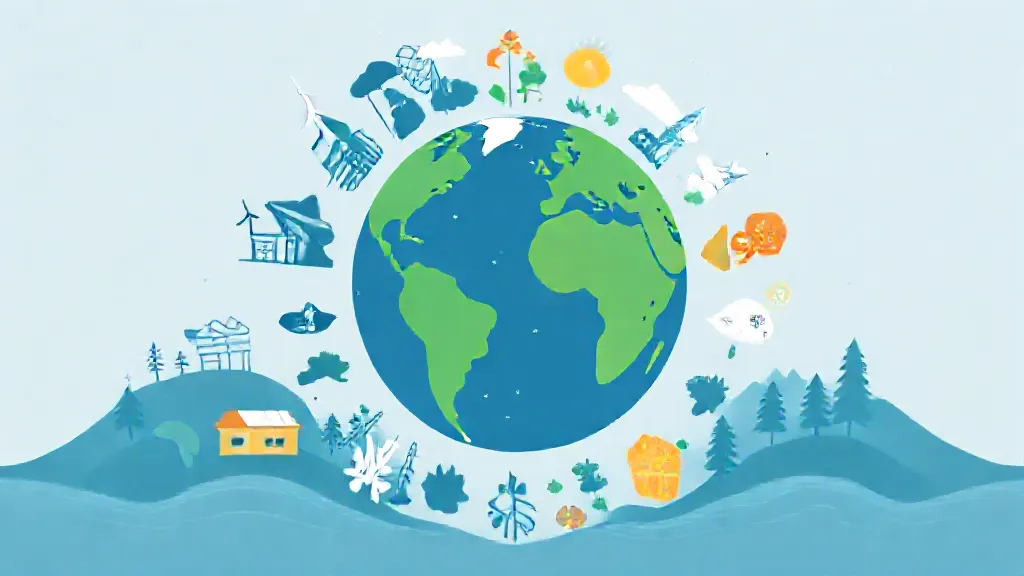Climate change has emerged as one of the most pressing global challenges of our time, impacting natural ecosystems, human health, and economies worldwide. The phenomenon refers to significant changes in global temperatures and weather patterns over time, primarily driven by human activities such as burning fossil fuels, deforestation, and industrial processes. As the planet warms, the consequences are far-reaching, affecting every corner of the globe, making it a universal concern that transcends borders and cultures.
The Science Behind Climate Change
At the heart of climate change lies the greenhouse effect, a natural process that warms the Earth. However, human activities have intensified this effect by increasing concentrations of greenhouse gases (GHGs) like carbon dioxide (CO2), methane (CH4), and nitrous oxide (N2O) in the atmosphere. The Intergovernmental Panel on Climate Change (IPCC) reports that CO2 levels have risen by over 40% since the pre-industrial era, primarily due to fossil fuel combustion.
This rise in GHGs traps heat in the atmosphere, leading to global warming, which in turn causes a cascade of environmental changes.
Impact on Ecosystems and Biodiversity
Climate change poses a significant threat to ecosystems and biodiversity. Rising temperatures and shifting weather patterns disrupt habitats, forcing species to adapt, migrate, or face extinction.
For instance, coral reefs, which are vital to marine biodiversity, are experiencing mass bleaching events due to increased sea temperatures. The loss of biodiversity not only affects ecosystems but also undermines the services they provide, such as pollination, water purification, and climate regulation, which are essential for human survival.
Human Health Risks Associated with Climate Change
The health impacts of climate change are profound and multifaceted.
Extreme weather events, such as heatwaves, hurricanes, and floods, can lead to injuries, fatalities, and the spread of infectious diseases. Additionally, air pollution from fossil fuel combustion exacerbates respiratory conditions, while changing climate patterns can influence the distribution of disease vectors like mosquitoes. Vulnerable populations, including the elderly, children, and those with preexisting health conditions, are particularly at risk, highlighting the urgent need for public health strategies that address these emerging threats.
Economic Consequences of Climate Change
The economic implications of climate change are staggering. The World Bank estimates that climate change could push over 100 million people into extreme poverty by 2030 due to its impact on agriculture, infrastructure, and livelihoods. Droughts and floods disrupt food production, leading to higher prices and food insecurity.
Furthermore, the costs of adapting to climate change and recovering from its impacts can strain national economies, especially in developing countries that lack the resources to implement effective measures.
Global Responses and Agreements
Recognizing the urgency of climate change, nations around the world have come together to address the issue through international agreements. The Paris Agreement, adopted in 2015, is a landmark accord that aims to limit global warming to well below 2 degrees Celsius above pre-industrial levels.
Countries are encouraged to set nationally determined contributions (NDCs) to reduce GHG emissions and enhance resilience to climate impacts. However, the effectiveness of these agreements relies on the commitment and cooperation of all nations, making it imperative for global solidarity.
The Role of Renewable Energy
Transitioning to renewable energy sources is crucial in mitigating climate change.
Solar, wind, and hydroelectric power offer sustainable alternatives to fossil fuels, significantly reducing GHG emissions. The shift towards renewable energy not only addresses climate change but also promotes energy security, job creation, and economic growth. Countries that invest in clean energy technologies can lead the way in innovation and establish themselves as leaders in the emerging green economy.
Individual and Community Action
While government policies and international agreements are vital, individual and community actions also play a critical role in combating climate change. Simple lifestyle changes, such as reducing energy consumption, using public transportation, and adopting a plant-based diet, can collectively make a significant impact. Community initiatives, like tree planting, local clean-up drives, and educational programs, empower individuals to contribute to climate action and raise awareness about the importance of sustainability.
The Path Forward: Education and Advocacy
Education and advocacy are essential in the fight against climate change. Raising awareness about the causes and consequences of climate change empowers individuals to take action and hold governments accountable. Educational institutions play a crucial role in fostering a generation that is informed and engaged in environmental issues.
Advocacy efforts can influence policy changes and promote sustainable practices, ensuring that climate change remains a priority on the global agenda.
